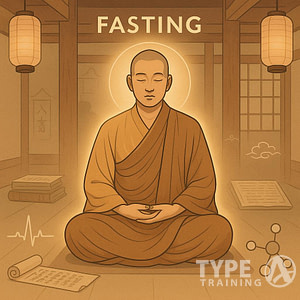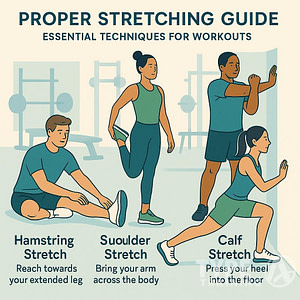In the current political climate, election anxiety is a common experience shared by many. The constant barrage of news and uncertainties about future leadership can leave you feeling overwhelmed and stressed. Integrating meditation into your routine can be a significant way to address this election anxiety.
Meditation offers a powerful tool to calm the mind and mitigate the effects of election-related anxiety, particularly during times of heightened political tension. By incorporating mindfulness practices, you can find a sense of peace amidst the chaos of election anxiety.
Anxiety doesn’t have to dominate your daily life. Meditation helps by fostering present-moment awareness, significantly reducing the brain’s tendency to focus on perceived threats, including those stemming from election anxiety.
Popular posts:
By learning to center yourself, you can decrease stress levels and improve your emotional well-being during this tense period.
By learning to center yourself through meditation, you can decrease stress levels and improve your emotional well-being during this tense period characterized by election anxiety.
Election anxiety can significantly impact your mental health, especially during periods of heightened political uncertainty. Understanding the psychological triggers and stressors related to voting and how they manifest can be beneficial, particularly when using meditation to alleviate election anxiety.
The Psychology of Voting and Stress
Election Anxiety and Meditation
Understanding Election Anxiety and Meditation
Voting is a fundamental democratic practice that often carries substantial emotional weight. When voting, you participate in decisions affecting your community and future. This act can be a source of stress if you deeply care about the outcomes.
Practicing meditation can help you manage election anxiety by encouraging a more balanced emotional response during stressful voting times.
Political campaigns and related media can heighten this stress by constantly highlighting high-stakes issues.
Different factors contribute to election-related stress: partisan divides, conflicting information, and societal pressures to vote. As anxiety levels rise with elections, you may experience a sense of urgency and pressure to act, which can be overwhelming. Engaging in meditation can provide a remedy for such election anxiety.
Impact of Political Uncertainty on Mental Health
Uncertainty is a significant driver of anxiety and stress surrounding elections. Not knowing the result of an election or fearing its potential impact on society can increase feelings of helplessness and unease.
Through meditation, you can cultivate a sense of calm that combats the uncertainty surrounding elections and alleviates election anxiety.
This uncertainty can exacerbate symptoms for individuals already dealing with mental health conditions such as generalized anxiety disorder.
Increased exposure to media coverage and social discussions about uncertain political futures can compound stress levels. When constantly facing unpredictable political landscapes, it becomes essential to find ways to alleviate this anxiety proactively.
American Psychological Association Findings on Election Stress
The American Psychological Association (APA) identifies elections as a considerable source of stress for many Americans. Surveys have shown that political discussions and media influence contribute significantly to nationwide stress levels during election seasons.
The link between mental health and election anxiety is profound, making meditation an essential tool for many seeking relief.
According to the APA, factors like constant news consumption and social media engagement can amplify feelings of worry and anxiety.
Awareness of these contributors helps you take steps to mitigate stress, such as regulating your media consumption and engaging in stress-reducing activities, which can aid in preserving mental well-being amidst election-related anxiety.
Meditation is a powerful tool for reducing stress and enhancing mental clarity. It offers techniques that promote relaxation and improve your ability to manage stress in everyday life.
Mindfulness and Nonjudgmental Attention
Mindfulness in meditation allows you to focus on the present moment, which is essential for stress reduction.
By practicing nonjudgmental attention, you learn to observe your thoughts and feelings without reacting to them. This awareness helps you distance yourself from stressors, reducing overreactions to daily challenges.
Such practice enhances your ability to stay calm and collected in stressful situations. Mindfulness can gradually build emotional resilience, helping you handle stress with greater ease and stability.
Deep Breathing as a Relaxation Technique
Deep breathing is a simple yet effective relaxation method taught in meditation. By concentrating on your breath, you can lower your heart rate and reduce anxiety.
This focus helps calm your nervous system, shedding tension accumulated throughout your body.
Incorporating deep breathing into your routine can significantly impact stress relief.
Incorporating meditation and deep breathing techniques can significantly impact stress relief, especially for those grappling with election anxiety.
Regular practice provides you with a practical way to manage acute stress, allowing you to recover balance quickly. Even a few minutes of controlled breathing can imbue a sense of calm, alleviating heightened stress responses.
Cognitive Flexibility Through Meditation
Meditation also fosters cognitive flexibility, which is the mind’s ability to shift perspectives and adapt to new situations.
This flexibility is key in stress management as it allows you to step back from rigid thought patterns.
By improving this adaptability, you can approach stressful situations with innovative solutions and reduced frustration.
Practicing meditation helps train your mind to break free from negative cycles and habitual responses.
Enhanced cognitive flexibility contributes to problem-solving capabilities under stress, making it easier to navigate life’s complexities without feeling overwhelmed. This adaptability empowers you to face stressors with an open and resourceful mindset.
Election anxiety can be overwhelming, but specific meditation practices may alleviate this stress. In this context, guided meditations provide structure and focus, while fostering resilience helps you maintain stability during political unrest associated with election anxiety.
Guided Meditations for Political Anxiety
Guided meditations serve as a powerful tool to address election-related stress. These sessions typically lead you through calming visualizations and breathing exercises designed to help redirect your focus away from political tensions.
Apps like Headspace and Calm offer specialized content tailored to political anxiety.
Utilizing meditation apps can enhance your ability to cope with election anxiety, offering tailored resources for managing stress.
Through consistent practice, you can cultivate a sense of inner peace and balance. These meditations encourage a nonjudgmental awareness of thoughts and emotions, which is essential in managing anxiety without becoming overwhelmed.
Fostering Resilience in Times of Political Turmoil
Building resilience is key to navigating the uncertainties that elections can bring.
Meditation fosters this resilience by reinforcing your mind’s ability to remain calm and focused amidst chaos.
Techniques often include mindfulness practices that center your awareness on the present moment rather than potential future outcomes.
By engaging in regular meditation, you build mental and emotional strength, which is essential in coping with the stress of election anxiety.
By engaging in regular meditation, you build mental and emotional strength. This resilience allows you to cope more effectively with political turmoil, maintaining your composure and capacity to handle challenges rationally.
Taking care of your mental and physical health during the election cycle is crucial. Engaging in self-care through healthy habits, regular exercise, and setting boundaries with news consumption can help mitigate anxiety.
Committing to meditation can serve as a proactive measure in your self-care arsenal against election anxiety.
Developing Healthy Habits
Incorporating healthy habits into your daily routine can provide stability amidst election-related stress.
Begin your day with a nutritious breakfast and ensure balanced meals throughout the day to maintain energy levels. Stay hydrated to help sustain cognitive function and mood stability.
Sleep is essential for mental health. Aim to get 7-9 hours of restful sleep each night.
Establish a bedtime routine, like reading or meditation, to signal to your body that it’s time to wind down. Mindfully acknowledging your emotions and practicing relaxation techniques can also support emotional health.
Mindfulness meditation can also be crucial during periods of election anxiety, allowing you to process emotions in a healthy way.
The Importance of Physical Exercise
Physical exercise serves as a powerful tool in combating election anxiety.
Engaging in regular activities such as walking, jogging, or yoga helps release endorphins and enhance your mood. Aim for at least 30 minutes of moderate exercise several days a week.
Consider joining a class or group that encourages exercise, whether online or in-person, to add a social element to your routine.
This can foster a sense of community and increase motivation. Remember, the goal is consistency, not intensity, allowing your body to reap the mental health benefits.
Setting Boundaries with the News Cycle
Setting boundaries with the news cycle aids in reducing election anxiety.
Designate specific times to check news updates, avoiding constant media consumption that could lead to overwhelm.
Utilize apps or browser extensions that limit or manage your media intake.
Curate your news sources carefully, choosing credible outlets that provide factual information without sensationalism.
Engaging in activities that draw you away from screens, such as hobbies or time with loved ones, can offer necessary mental breaks.
Prioritize mindfulness and present-focused activities, encouraging a balance in your daily schedule.
Political polarization can create rifts that extend beyond political discourse, affecting personal relationships and community dynamics. Understanding the roots of this divide and fostering compassion can pave the way for more harmonious interactions.
Practicing compassion through meditation can help mitigate the divisiveness often exacerbated by election anxiety.
Encouraging Compassion and Understanding
Building compassion involves acknowledging diverse perspectives in political discussions.
Recognize the emotions and experiences that drive opposing viewpoints. Listening actively can bridge gaps, allowing you to connect on a human level despite differences.
By focusing on understanding through meditation, you can ease the emotional turmoil brought on by election anxiety.
Prioritize these strategies to promote empathy:
- Active Listening: Practice listening without interrupting.
- Finding Common Values: Focus on shared aspirations like community welfare.
- Respectful Dialogue: Encourage meaningful conversations by avoiding derogatory language and affirming the other’s perspective.
Seeking Professional Help With a Meditation Expert
When you decide to seek professional guidance for meditation, finding a meditation expert is essential. A qualified expert will have the unrivaled expertise needed to make life feel a little easier. Their knowledge encompasses various aspects of meditation that can be customized to suit your needs.
To begin, consider using guided meditations. These are often beneficial for beginners and those dealing with election anxiety.
An expert will guide you through focused meditation sessions, ensuring you benefit fully.
Mindfulness tips and focus tools also play a key role in managing anxiety. They help you stay grounded in the present moment. These tools can be tailored to your specific situations, allowing you to better manage stressors.
Look for experts who offer a variety of services, including sleep support and dedicated programs. These services enhance the meditation experience and support your mental well-being. Guided sleep meditations can aid in achieving restful nights, particularly in stressful times.
If you’re interested in structured learning, explore programs like those offered by Type A Training. They provide a course titled Mastering Mindfulness & Meditation in 5 Easy Lessons, which could be a valuable resource.
Conclusion
Election anxiety is common, and mindfulness techniques like meditation can offer tangible ways to manage it. By focusing on the present moment, you engage in nonjudgmental awareness that can reduce stress.
Election anxiety is common, and mindfulness techniques like meditation can offer tangible ways to manage it effectively.
Simple Practices:
- Meditation apps
- Deep breathing exercises
- Regular physical activity
These tools help anchor your mind, minimizing the overwhelm that election cycles might bring.
Integrating meditation into your daily routine provides a grounding sense of calm. It encourages mental clarity and emotional stability, enabling you to face uncertainty with more confidence.
When you practice these techniques consistently, you may discover a notable reduction in anxiety levels. By prioritizing your mental health, you take proactive steps toward a more peaceful state of being, regardless of external circumstances.
Regular meditation practice can help you navigate the challenges of election anxiety, providing tools for emotional regulation.
Frequently Asked Questions
Managing election anxiety becomes easier with meditation, as it allows you to create a balanced perspective amidst chaos.
Meditation can help manage election anxiety by incorporating practices that calm the mind and establish routine. Specific forms of meditation can effectively address stress and enhance how you emotionally process political events and conversations.
What practices can be incorporated into meditation to specifically address stress related to the political climate?
Incorporate mindfulness techniques to focus on the present moment and reduce stress. Deep breathing exercises and guided visualizations can help calm your mind. Engaging in body scans may help you to relax and release tension associated with the political climate.
How can one establish a meditation routine during intense political events?
To create a meditation routine, begin by designating a specific time each day. Set aside a peaceful space free from distractions and start with short sessions, gradually increasing duration. Consider using meditation apps or guided recordings to maintain focus.
What are scientifically proven benefits of meditation for managing stress and anxiety?
Meditation has been shown to reduce stress hormones and improve overall well-being. It can enhance your focus and increase emotional resilience, making it easier to manage anxiety. Research indicates that regular meditation boosts mood stability and reduces symptoms of stress and anxiety.
Which types of meditation are most effective for coping with uncertainty during election seasons?
Mindfulness meditation is effective in dealing with uncertainty. It encourages staying present and not becoming overwhelmed by future possibilities. Loving-kindness meditation can also be beneficial for fostering compassion and reducing negative emotions tied to political events.
How does meditation influence our emotional response to political news and developments?
Meditation can help you regulate emotional responses by increasing awareness and fostering a balanced perspective. It teaches you to observe thoughts without judgment, reducing reactivity to political news. This allows you to approach information more calmly and rationally.
Can meditation impact how one engages with political conversations and debates?
Practicing meditation may improve active listening and communication skills. This can transform how you engage in political conversations. It encourages patience and empathy, allowing for more constructive and respectful dialogues.
Engaging in meditation can refine your communication skills, which is crucial for discussions about election anxiety.
Meditation also helps mitigate stress, leading to more clear-headed and thoughtful discussions.
Election Anxiety and Meditation
Ultimately, meditation can serve as a vital practice for addressing the stress associated with election anxiety and fostering a calm mindset.















